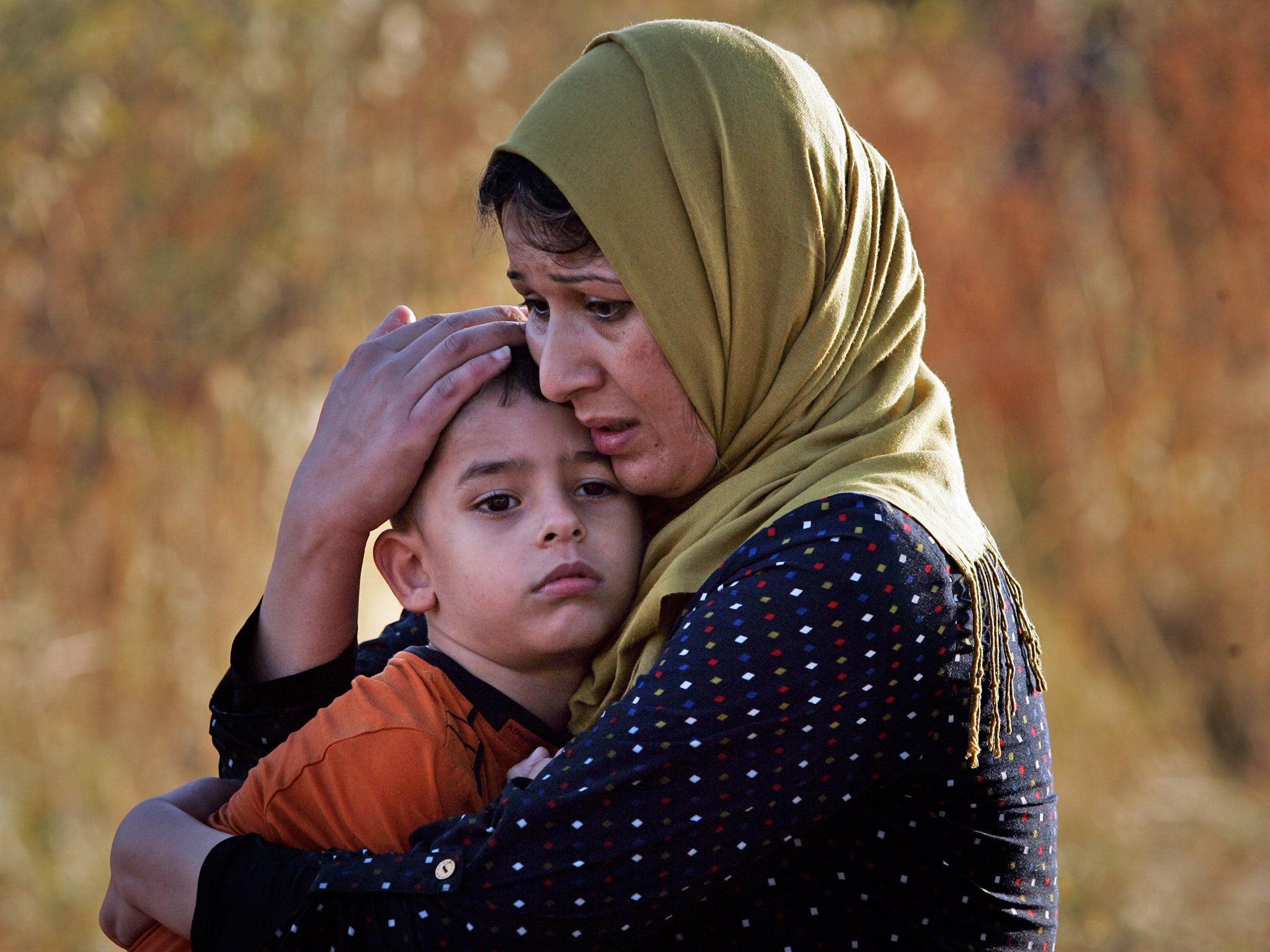Refugee crisis: EU 'first country' rule change puts pressure on UK to take in more asylum seekers
A system obliging refugees to register in the first European country they enter looks set to be abolished

The rules obliging refugees to register in the first European country they enter look set to be abolished under a radical revision of the European Union’s asylum system. The move could be problematic for David Cameron ahead of Britain’s EU referendum.
The EU’s system, part of the so-called Dublin regulation, has been widely ignored during the migrant crisis in which more than a million refugees have streamed into Europe.
However officials say the rules were never properly applied anyway, as most refugees landed on deserted beaches in Greece and Italy, and made their way over land to other countries such as Germany and Sweden.
The move for reform, reported in today’s Financial Times, comes after Greece, in particular, came under criticism for failing to set up basic facilities for refugees.
However, it will mean that the richer countries of final destination, like Germany, will have to establish major registration and fingerprinting infrastructure to cope with the hundreds of thousands of expected refugees.
It could also mean that Britain may find it more difficult to send refugees back to neighbouring EU states. One of the main arguments of the British campaign to remain in the EU is that the Dublin regulations allow the UK to deport asylum-seekers if Britain is not the first European country that they arrived in.
If those regulations were to be changed the UK might be forced to accept refugees who have managed to enter the country from across the Channel, regardless of where they first arrived in Europe. This could further encourage migrants to head for Britain.
The Out campaign was quick to make capital over the planned change.
“This change would appear to provide an incentive for asylum-seekers to get across the Channel,” said a spokesman for Vote Leave.
“This is further evidence that as part of the EU the UK does not have control over migration or asylum policy.”
Much will depend on the detail about how the new rules will work. With no land border with any other country in the passport-free Schengen zone, Britain is not expected to see a strong surge in migration.

The Dublin system was already undermined last September when German Chancellor, Angela Merkel, lifted her country’s right to return Syrian refugees to the first country of entry. Ms Merkel has already called for the EU to revise the Dublin rules to cope with the refugee challenges.
The Dublin rules date back to a 1990 convention in the Irish capital, and came into force for the first 12 signatories in 1997. However, officials have long criticised them, suggesting they could not be applied in countries like Greece and Italy with long, unprotected coastlines. “It looks like Dublin will have to be sacrificed if we want to save the Schengen system,” an EU official said.
The EU Home Affairs Commissioner Dimitris Avramopoulos told MEPs last week that a revision of the Dublin system would be unveiled in March. “Dublin should not just be a mechanism to allocate responsibility, but also a solidarity instrument among member states. It must be revised deeply; it was adopted in a totally different landscape,” he said.
Six Europeans countries have already reimposed border controls and suspended their Schengen membership in an effort to contain the large influx of refugees.
In his state of the union address to the European Parliament last September, European Commission President Jean-Claude Juncker promised a reform of the Dublin system. “It is time we prepare a more fundamental change in the way we deal with asylum applications – and notably the Dublin system that requires that asylum applications be dealt with by the first country of entry,” he said.
The European Council President Donald Tusk said that the EU had “no more than two months to get things under control” or face “grave consequences”.
Join our commenting forum
Join thought-provoking conversations, follow other Independent readers and see their replies
Comments
Bookmark popover
Removed from bookmarks